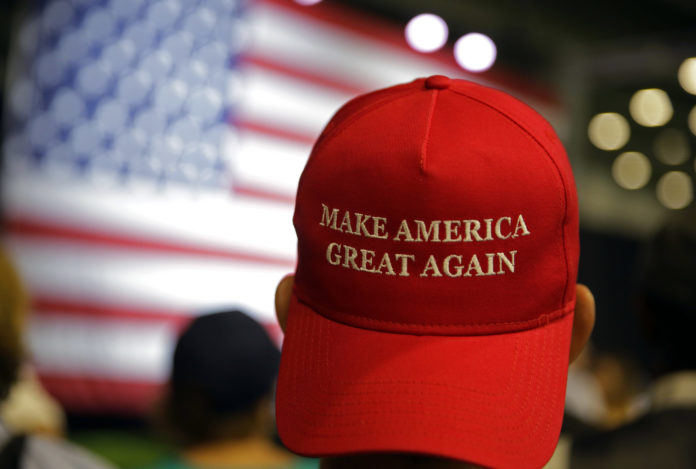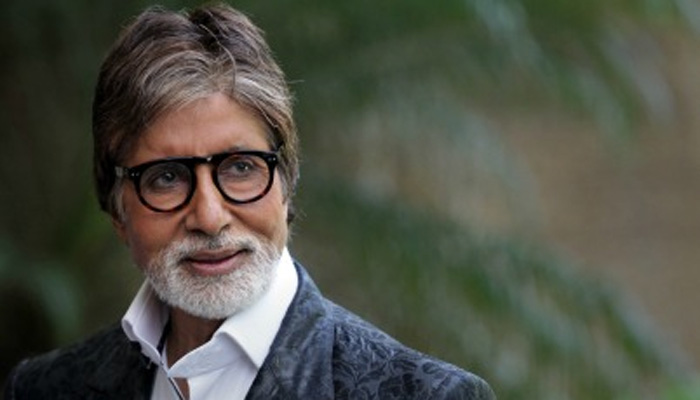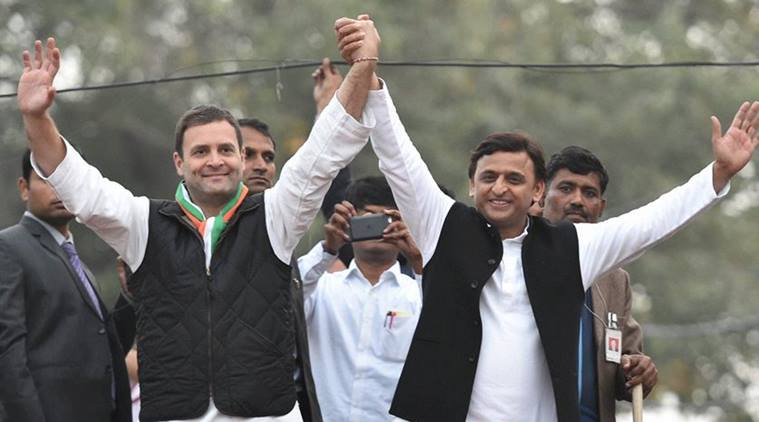
Donald Trump’s voters adored him for mostly paying his own way in the first half of the presidential campaign. Yet those same people are shrugging their shoulders now that he’s raising money just like the rivals he once disparaged as the “puppets” of big donors.
A new Associated Press-GfK poll found that 63 percent of Trump supporters say they’re at least somewhat more likely to back a self-funded candidate, just as he once was. However, just 13 percent consider it a problem that Trump changed his mind — and nearly all those think it’s only a minor one.
How can people care so strongly about a candidate’s original stance and then not care at all when he changes his mind?
At a Trump rally last week near Indianapolis, some of his most ardent supporters explained their thinking. Many said it wouldn’t be fair for Trump, a billionaire businessman, to have to spend his own money against Hillary Clinton. The presumptive Democratic nominee and her allies aim to raise $1 billion for the general election.
“It was inspiring to see someone spend their own money rather than relying on lobbyists,” said 18-year-old Maxwell Nugent, who will be casting his first presidential vote for Trump this November. “It makes it more profound for him to be asking all the people who supported him to be giving money to the campaign now.”
Nugent, who wore a black T-shirt that reads: “Hillary’s Lies Matter,” said he likes that Trump “started from the bottom, with no donors.”
So far, Trump has put about $50 million of his own money into his campaign, mostly through personal loans which he says he will not seek to recoup. But he assembled a fundraising operation two months ago and has raised more than $51 million for his campaign and Republican Party allies.
Others who attended the Indiana rally said they have some concerns about Trump raising money — but also have faith that he won’t bend his policies to appease donors.
“A big thing with me is that since he is a billionaire, he doesn’t need to be bought,” said Diane Martinez, who lives in Westfield, Indiana, and leads a group called Save Our Veterans that supports Trump.
Trump has lamented the influence that super-donors such as Charles and David Koch and Sheldon Adelson hold over Republican politicians, naming those three specifically.
Yet he’s now developing a relationship with Adelson, a billionaire Las Vegas gaming executive, that could unleash streams of money to help him win the election.
Trump supporters are among those who see an issue with the way campaign funding works. In the AP-GfK poll, 51 percent of Trump supporters call the way presidential candidates raise money for their campaigns very or extremely important to them, similar to the 46 percent of all Americans who say that.
“We need absolute reform,” said Victor Wakley, another Save Our Veterans member at the Indiana rally for Trump. “I loved that he was paying his own way, and I do have some concerns now that he’s not.”
Democrat Bernie Sanders, who solicited only small donations online and held no traditional fundraisers, made campaign finance reform a pillar of his presidential campaign. Clinton also has promised to press for an end to unlimited money that flows into campaigns through super political action committees, although she is making full use of those groups in her 2016 bid.
Trump has called super PACs “corrupt” but offered no policy proposals about campaign finance. He’s also stopped talking about the corrosive effect of donor money since he began raising it.
In an AP interview this spring, Trump said he is raising money only to help the Republican Party, and he has repeatedly said it would be easier for him to just write a big check to his own campaign. He also stresses that his campaign fundraising is coming from small donors.
None of those statements is entirely true.
Trump’s fundraising deal with the party includes a provision that the first $2,700 of any donation go to his campaign. The rest of it — up to about $500,000 per donor — is divided among the national party and some state Republican groups.
Online solicitations accounted for less than half of the money Trump raised in late May and June, and it’s not clear how much of it was from small donors.
On Trump’s self-funding reversal, 16 percent of all Americans polled by AP-GfK considered it a major problem and 21 percent a minor problem.
Among Clinton supporters, 26 percent say they’re at least somewhat more likely to support a candidate who’s funding his or her own campaign, but more than half say they consider Trump’s reversal to be a problem, including 27 percent who say they think it’s a major problem.
The Trump supporters say it’s no surprise Democrats are trying to emphasize Trump’s switch from self-funding to traditional funding.
“You could say it’s hypocrisy. You could also say it’s a different game now,” said Jerry Loza, a Trump supporter at the Indiana rally.
The AP-GfK Poll of 1,009 adults was conducted online July 7-11, using a sample drawn from GfK’s probability-based KnowledgePanel, which is designed to be representative of the U.S. population. The margin of sampling error for all respondents is plus or minus 3.3 percentage points.
Respondents were first selected randomly using telephone or mail survey methods and later interviewed online. People selected for Knowledge Panel who didn’t have access to the Internet were provided access for free.
From Agencies, Feature image courtesy AP

























